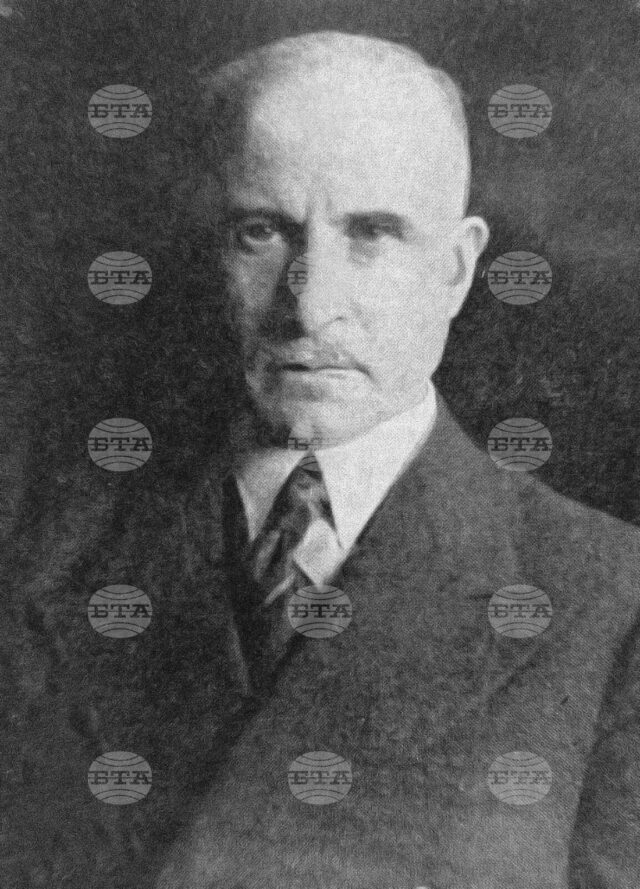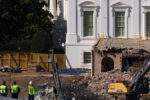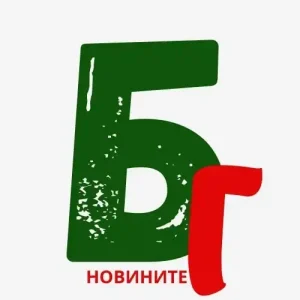
In October 1925, Bulgaria found itself on the brink of war with Greece. The events, which went down in history as the “Petrich Incident,” or more colloquially “The War of the Stray Dog” unfolded in the Petrich region from October 19 to 29 and attracted the attention of the international community.
On October 19, 1925, at Border Post 1 near the Demir-Kapu pass in Belasitsa, a Greek soldier crossed the Bulgarian border in search of his dog. During his search, the soldier came upon Bulgarian sentries who warned him that he is on Bulgarian territory. Gunfire was exchanged between the two soldiers, with no witnesses present. This occurred at about 1.30 p.m. according to the Greeks and 2.45 p.m. according to the Bulgarians. The Greek soldier was killed after he had fired. The Bulgarian soldiers at Post 1 say that the Greek sentry was killed in Bulgarian territory. The Greeks claimed the opposite, saying they saw the Bulgarians drag the corpse into Bulgaria.
Several hours later, his comrades at the Greek border went in search of him and after encountering Bulgarian sentries, a shootout ensued, turning the whole affair into a diplomatic incident. As the firing could be heard, reinforcements gradually arrived at both posts. On the Greek side, the post’s reserves, stationed about 1 kilometre behind the post, came to its assistance. These reserves consisted of a few men under the command of a second lieutenant. According to Bulgarian sources, approximately 15 armed civilians arrived at the scene three hours after the fighting started.
The first reports of the skirmish reached Athens in the early hours of October 20. In retrospect, this communication was significant because it asserted that the “incident was premeditated by the Bulgarians,” creating an atmosphere of mistrust within the Greek Ministry of War that morning. This news, however, was transmitted to the War Ministry in an altered form, stating that “Bulgarians had attacked” in battalion strength and were occupying a hilltop. This led to the Greek Ministry of War to order the 3rd and 4th Army Corps to prepare an advance into Bulgaria by way of the Struma Valley.
News of the incident reached the General Staff of the Army in Sofia at 5 p.m. and orders were given to terminate the skirmish and prevent further conflict. The Bulgarian government expressed its regret and claimed that the whole incident was a misunderstanding. They also insisted that the case be resolved by setting up a commission with representatives from both countries to investigate the incident. The Prime Minister of Greece, General Theodoros Pangalos, refused. On October 22, 1925, without declaring war, he ordered the aforementioned 3rd and 4th Army Corps, stationed near Serres, to invade Bulgaria. The Bulgarian border guards, whose numbers had been limited to 300 men by the Treaty of Neuilly, confronted a significantly larger Greek force. en Bulgarian villages — Kulata, Chuchuligovo, Marino Pole, Dolno Spanchevo, Novo Hodzhovo, Piperitsa, Lehovo, Topolnitsa, Marikostinovo, and Kartechno — were occupied. The Greek army was stopped in front of Petrich by the small border guard and volunteers, including units of the Internal Macedonian Revolutionary Organization (IMRO).
The Bulgarian government, led by Aleksandar Tsankov, immediately informed the League of Nations Secretariat in Geneva of the Greek aggression. The Minister of War, Gen. Ivan Valkov, dispatched reinforcements to the area of the incursion, six infantry companies and three machine-gun companies equipped with four mountain guns and eight field guns, numbering only about 1,000 troops in total. The Bulgarian army was explicitly ordered to resist the Greek army only in cases of extreme necessity. Another task undertaken by the government was the evacuation of Bulgarian civilians from the combat areas.
Meanwhile, the Greek soldiers began looting whatever they could, which slowed down their offensive. This gave the Bulgarian troops the opportunity to dig in around the General Todorov railway station and the Rupite area. The Greek delay also enabled the IMRO, which had a strong presence in the region, to send reinforcements to Petrich. The town was attacked again on 22–23 October, but the most serious attack took place on 25 October. Local residents, supported by IMRO detachments, managed to repel the Greeks several times.
Both sides lobbied for diplomatic support at the League of Nations headquarters in Geneva. The Greek government demanded a compensation of 50 million drachmas (about GBP 142,000) for the families of soldiers who were killed or wounded in the skirmishes, while Bulgaria demanded compensation amounting to BGN 52 million for damage inflicted by the Greek Army. On October 28, the League of Nations ordered a ceasefire, and the Greek Army withdrew from Bulgarian territory. Greece to pay Bulgaria an indemnity of BGN 3 million as compensation. A subsequent League of Nation inquiry into the incident concluded that both sides had made errors that escalated the situation.
Information about the dispute, the Greek military invasion, and the decisions of the League of Nations can be found in BTA’s News Bulletin:
Vienna, October 21, 1925 /Correspondent Bureau/
“Neue Freie Presse” has learned from Athens that the War Ministry has ordered a division to advance immediately into Bulgarian territory in order to ascertain the motives behind the Bulgarian attack.
Greek military circles were under the impression that the attackers were Bulgarian regular troops, not guerrilla fighters.
As a result of the skirmish at Belasitsa, Greek troops began to advance into Bulgarian territory.
At Greece’s request, the Bulgarian government ordered a ceasefire, prompting Bulgarian forces to withdraw and display white flags.
The Greek government ordered border troops to swiftly occupy Petrich, the primary base of the guerrilla forces, to dismantle the guerrilla organizations and achieve their objectives.
Sofia, October 22, 1925
At 3 p.m. today, it was reported that Greek forces near Petrich are believed to possess three artillery batteries and a comparable number of infantry units. They have taken up positions near the border and are shelling the villages of Marikostinovo and Marino Pole from there. Our weak border guard withdrew today at 3 p.m. from the village of Marikostinovo.
Bulgaria refers the Greek military invasion to the League of Nations:
Sofia, October 22, 1925
In view of the violation of Bulgarian territory by Greek troops, who continue to advance despite repeated requests by Bulgaria for an inquiry to determine responsibility for the incident that occurred on the 19th of this month and in accordance with Articles 10 and 11 of the League of Nations Covenant, the Bulgarian government today lodged a protest with the League Secretariat and requested the immediate convening of the League Council to deal with the conflict.
Athens, October 22, 1925 /Athens News Agency/
The Greek verbal note, delivered this evening to the Bulgarian legation in Athens and communicated to the Greek chargé d’affaires in Sofia, who will convey it to the Bulgarian government, began with an authentic account of the border incident, according to which Bulgarian troops attacked Greek border post number 69 in the Demir Hisar area at 2 p.m. on October 19, killing the Greek sentry. As skirmishes broke out along the entire line of posts numbered 67 to 69, the Greek captain, commander of the company providing cover, immediately went to the scene and ordered a ceasefire, which was indeed observed. But when the captain came out holding a white flag and approached the Bulgarian posts to negotiate with the officers, the Bulgarians opened fire and killed him on the spot. The shooting then continued until evening. (…) Greek blockhouse 69 was completely occupied by the Bulgarians.
During the night of 19 to 20 October, the reinforced Greek positions successfully recaptured and held all areas except for blockhouse 69, which remained the primary objective of the Bulgarian detachment.
The incursion into Greek territory continues at this moment, as Bulgarian troops occupy some parts of that territory.
Sofia, October 23, 1925
The Bulgarian government responded to last night’s Greek note with the following verbal note:
In response to the verbal note of October 22, No. 1761, and in support of the statements made yesterday by the Royal Minister of Foreign Affairs through the Minister of the Greek Legation, the Royal Ministry has the honour to bring to the attention of the Greek Legation the following:
The Royal Government categorically disputes the version set forth in the above-mentioned Verbal Note regarding the origin of the border incident that occurred on the 19th of this month and the responsibilities associated with it.
However, considering that there is a formal contradiction on certain essential points between the theses of the two governments, the Bulgarian government proposed from the outset that an ad hoc commission be appointed to conduct an impartial inquiry. This proposal was renewed twice through the head of the Greek legation in Sofia and the head of the Bulgarian legation in Athens.
At the same time, the Bulgarian government called for both parties to issue clear directives to cease cross-border gunfire.
Unfortunately, this proposal remained unanswered. On the contrary, a large number of Greek troops crossed the border, acting as enemies, and are currently occupying Bulgarian territory on a 32 km front and about 12 km inland.
This invasion of the territory of a friendly country, a member of the League of Nations and notoriously unarmed, was accompanied by actual military action: artillery, infantry, and aircraft firing on a defenceless population.
In this situation, the Bulgarian government felt compelled to turn to the League Council and ask it, on the basis of Articles 10 and 11 of the Covenant, to meet immediately and take the decisions required by the events of the last two days.
Pending the Council’s decision, and since a Greek army still occupies a large part of the national territory, the Bulgarian government finds itself, to its great regret, unable to enter into direct negotiations with the Greek government.
Paris, October 23, 1925 /Havas/
Mr. Briand [Aristide Briand, President of the Council of the League of Nations] received the Greek and Bulgarian ministers plenipotentiary in succession.
Paris, October 23, 1925 /Havas/
Mr. Briand decided to convene the Council of the League of Nations on Monday afternoon in Paris. Greece and Bulgaria were invited to send representatives to the Council and to refrain from any hostile action.
Paris, October 26, 1925 /Havas/
The order to Greek troops to withdraw to the border line immediately after the evacuation of the Greek fort, which is still occupied by the Bulgarians, has been repeated.
Sofia, October 26, 1925
The situation at 7 p.m. today is as follows: The Greeks continue to hold their positions in our territory. No shooting has been reported since noon today.
On October 26, the Council of the League of Nations began work on the Greek-Bulgarian case:
Paris, October 26, 1925 /Havas/
The League Council convened at 6 p.m. Mr. Briand recalled the nature of the dispute, read the telegrams exchanged with Bulgaria and Greece, and the telegrams he had sent to both countries.
The representative of Bulgaria stated that at no time had any part of Greek territory been occupied by Bulgarian troops. The representative of Greece stated that Bulgarian troops were on Greek territory and that Greek troops would withdraw when the Bulgarians withdrew from Greek territory.
In view of these contradictory statements, Mr Briand proposed that the Council meet in private session.
The Council appointed Mr. Chamberlain as rapporteur and then unanimously accepted his proposal that the representatives of both countries be invited to inform him within 24 hours that the Greek and Bulgarian governments had ordered their troops to withdraw unconditionally behind their own borders, that hostilities had ceased, and that all troops had been warned that any resumption of fighting would result in severe sanctions.
In order to assist the Council and the two parties concerned, the Council requests France, England, and Italy to order their officers in the vicinity to go immediately to the area where the conflict broke out and to inform the Council directly as soon as the troops of both countries have withdrawn behind their respective borders and as soon as hostilities have ceased.
The Bulgarian delegate, on behalf of the Bulgarian government, accepted the Council’s decision, while the Greek delegate stated that he was obliged to report to his government, which, he added, would certainly comply with this decision.
Paris, October 28, 1925 /Havas/
Before noon on this date, Bulgaria and Greece notified the Council of the League of Nations that they unconditionally accept the invitation extended to both governments. Greece reported that the withdrawal from Bulgaria started before noon. The Greek and Bulgarian delegates asked the League Council to conduct a thorough investigation into the causes of the frequent disturbances in the region, particularly the activities of the guerrila forces.
Paris, October 29 /Havas/
The League Council decided this evening, in accordance with Mr. Chamberlain’s report, to appoint a commission charged with conducting a thorough investigation into the Greek-Bulgarian incidents, highlighting with all possible accuracy the origin of these incidents, and all the facts relating to them that gave rise to the Council’s intervention.
On November 6, the commission will meet in Geneva. It has also been agreed that prisoners will be immediately released and repatriated at the expense of the country that captured them.
All property (livestock, etc.) that has been taken will be immediately returned. In cases where this is impossible, compensation will be paid.
The representatives of Bulgaria and Greece formally accepted all provisions of the resolution on behalf of their governments, following its unanimous adoption by the Council.
Athens, October 29, 1925 /Athens News Agency/
A telegram received directly from Demir Hisar reports that the withdrawal of Greek troops from Bulgarian territory was completed at midnight, i.e. eight hours before the deadline agreed between the foreign military attachés and the commander of the Greek armed forces.
The commission of inquiry, tasked with investigating the situation in Bulgaria and Greece, departs Geneva on November 7. In mid-November, its members will visit the site of the incident in the Demir Hisar area.
Geneva, December 4, 1925 /BTA/
The report of the Commission on the Greek-Bulgarian conflict concludes that the Bulgarian government acted in accordance with the League of Nations Covenant. Regarding Greece, while acknowledging the unrest caused by the death of Captain Vassiliadis, who was carrying a white flag, the Commission finds that Greece violated the League Covenant by deploying its troops to occupy part of Bulgarian territory.
Consequently, the Commission expressed the opinion that the compensation requested by the Greek government, amounting to a total of 50 million drachmas, should be rejected, with the exception of the claim for Captain Vassiliadis, which was taken into account in determining the compensation due to Bulgaria.
The Greek government is liable for the costs, losses, and suffering caused to the Bulgarian people and government as a result of the Greek military incursion. It is required to pay Bulgaria a total of BGN 30 million: BGN 10 million as compensation for material and non-material damages, including expenses incurred by the Bulgarian government’s military response, loss of life, and emotional distress; and BGN 20 million for losses sustained by private individuals, primarily relating to clothing, livestock, and food. October 19, 1925: Border Incident Near Petrich Leads to Greek Incursion Into Bulgarian Territory THE NEWS FROM BULGARIA – NEWS AGENCY 2009-2025 2025-10-19 07:01:26 Latest news World news Country news Most important news latest news most important latest of the day Justice Petar Nizamov Feathers Petar Nizamov- Feathers Justice bg iustitia.bg iustitia iusticia usticia investigation Burgas Bulgaria news news of the last hour news of the day news of today Bulgaria news The news from Bulgaria blitz news top news most important most commented latest news Boyko Borisov news weather coronavirus news news weather facebook youtube facebook instagram news today news of the last minutes news today today news news bg news leading news hot news bg news site for news all news news bg news of the last hour latest latest news bg news of today news today news today news of the last hour latest news today news bg news news 24 hours news vesti bg novini news world bird bg bivol bg bivol trud bg novini latest news today novinite bg news hello bulgaria political party coat of arms delyan peevski scandalous Bulgarian National Television Free Europe Television scandal exclusive live tv live right now tv tv online tv program bg live now tv news online tv online live court Burgas court Burgas district court Burgas court Burgas district court Burgas district court Burgas appellate court Burgas prosecutor Burgas prosecutor’s office Burgas district prosecutor’s office Burgas district prosecutor’s office Burgas district prosecutor’s office Burgas district prosecutor’s office Burgas district prosecutor’s office Burgas district prosecutor’s office Prosecutor General Ivan Geshev Prosecutor Geshev Tsatsarov Ministry of Internal Affairs Burgas ODMR Burgas ODPR Burgas police Burgas district police Burgas prosecutor Tsatsarov SGS cases Varna court chairman of the SGS court decisions on civil cases decisions on cases Plovdiv court decision of the court decisions cases Varna court criminal cases district district court decisions work in the court SGS chairman of the SGS judges Sofia court post judges Plovdiv court Plovdiv judges Plovdiv Supreme Court Inspectorate Supreme Court Supreme Judicial Council lawyer lawyer criminal cases lawyer civil cases lawyer marriage cases lawyer administrative criminal law criminal process civil law civil process administrative law constitutional law













